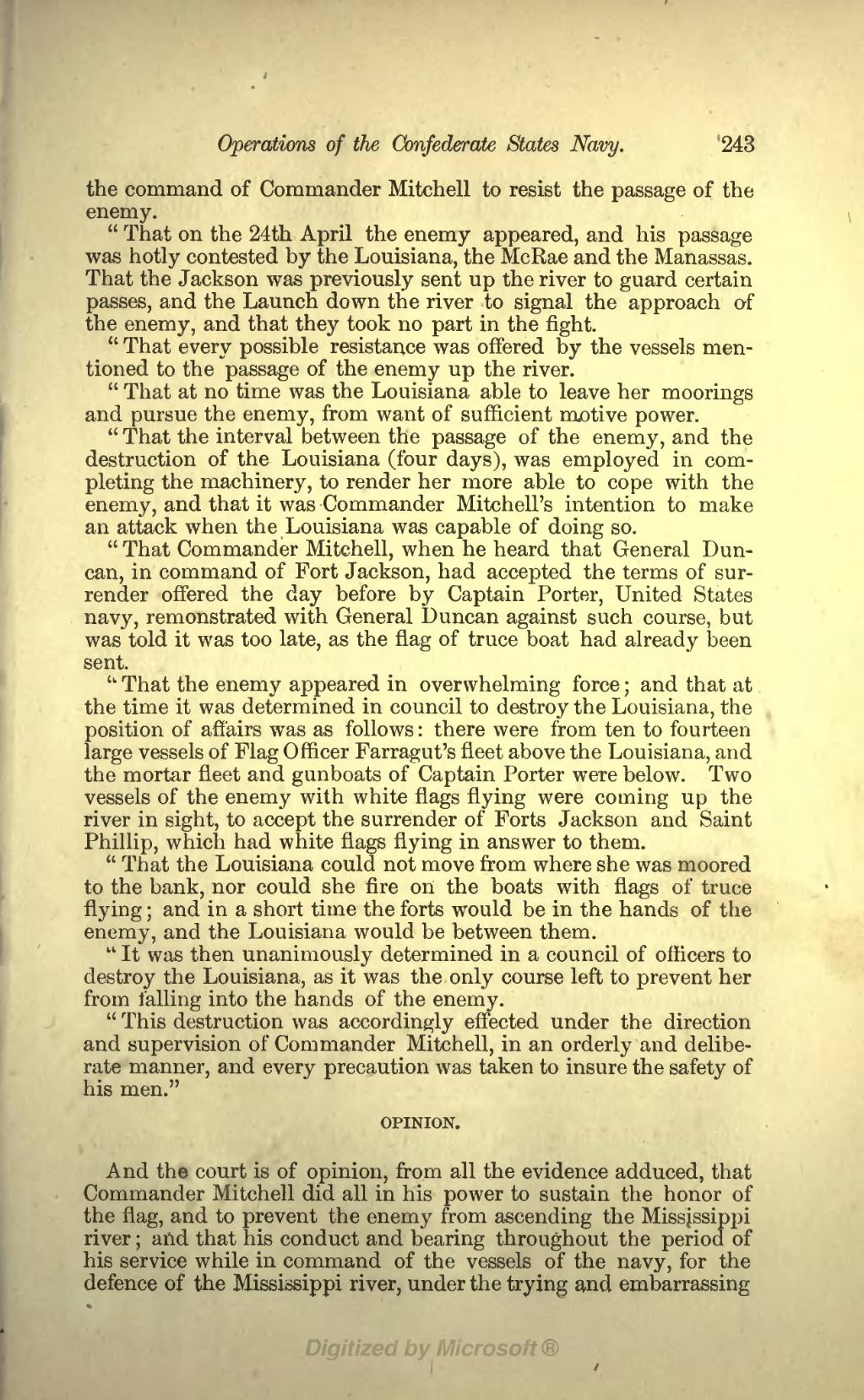the command of Commander Mitchell to resist the passage of the enemy.
"That on the 24th April the enemy appeared, and his passage was hotly contested by the Louisiana, the McRae and the Manassas. That the Jackson was previously sent up the river to guard certain passes, and the Launch down the river to signal the approach of the enemy, and that they took no part in the fight.
"That every possible resistance was offered by the vessels mentioned to the passage of the enemy up the river.
"That at no time was the Louisiana able to leave her moorings and pursue the enemy, from want of sufficient motive power.
"That the interval between the passage of the enemy, and the destruction of the Louisiana (four days), was employed in completing the machinery, to render her more able to cope with the enemy, and that it was Commander Mitchell's intention to make an attack when the Louisiana was capable of doing so.
"That Commander Mitchell, when he heard that General Duncan, in command of Fort Jackson, had accepted the terms of surrender offered the day before by Captain Porter, United States navy, remonstrated with General Duncan against such course, but was told it was too late, as the flag of truce boat had already been sent.
"That the enemy appeared in overwhelming force; and that at the time it was determined in council to destroy the Louisiana, the position of affairs was as follows: there were from ten to fourteen large vessels of Flag Officer Farragut's fleet above the Louisiana, and the mortar fleet and gunboats of Captain Porter were below. Two vessels of the enemy with white flags flying were coming up the river in sight, to accept the surrender of Forts Jackson and Saint Phillip, which had white flags flying in answer to them.
"That the Louisiana could not move from where she was moored to the bank, nor could she fire on the boats with flags of truce flying; and in a short time the forts would be in the hands of the enemy, and the Louisiana would be between them.
"It was then unanimously determined in a council of officers to destroy the Louisiana, as it was the only course left to prevent her from falling into the hands of the enemy.
"This destruction was accordingly effected under the direction and supervision of Commander Mitchell, in an orderly and deliberate manner, and every precaution was taken to insure the safety of his men."
OPINION.
And the court is of opinion, from all the evidence adduced, that Commander Mitchell did all in his power to sustain the honor of the flag, and to prevent the enemy from ascending the Mississippi river; and that his conduct and bearing throughout the period of his service while in command of the vessels of the navy, for the defence of the Mississippi river, under the trying and embarrassing
